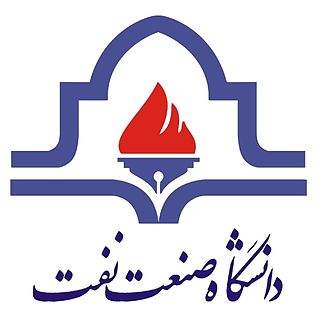Related Research Articles

Persian, also known by its endonym Farsi, is a Western Iranian language belonging to the Iranian branch of the Indo-Iranian subdivision of the Indo-European languages. Persian is a pluricentric language predominantly spoken and used officially within Iran, Afghanistan, and Tajikistan in three mutually intelligible standard varieties, respectively Iranian Persian, Dari Persian, and Tajiki Persian. It is also spoken natively in the Tajik variety by a significant population within Uzbekistan, as well as within other regions with a Persianate history in the cultural sphere of Greater Iran. It is written officially within Iran and Afghanistan in the Persian alphabet, a derivative of the Arabic script, and within Tajikistan in the Tajik alphabet, a derivative of the Cyrillic script.

Iran, officially the Islamic Republic of Iran (IRI), also known as Persia, is a country in West Asia. It borders Turkey to the northwest and Iraq to the west, Azerbaijan, Armenia, the Caspian Sea, and Turkmenistan to the north, Afghanistan to the east, Pakistan to the southeast, the Gulf of Oman and the Persian Gulf to the south. With a mostly Persian-ethnic population of almost 90 million in an area of 1,648,195 km2 (636,372 sq mi), Iran ranks 17th globally in both geographic size and population. It is the sixth-largest country entirely in Asia and one of the world's most mountainous countries. Officially an Islamic republic, Iran has a Muslim-majority population. The country is divided into five regions with 31 provinces. Tehran is the nation's capital, largest city and financial center.

The Iran–Iraq War, also known as the First Gulf War, was an armed conflict between Iran and Iraq that lasted from September 1980 to August 1988. Active hostilities began with the Iraqi invasion of Iran and lasted for nearly eight years, until the acceptance of United Nations Security Council Resolution 598 by both sides. Iraq's primary rationale for the attack against Iran cited the need to prevent Ruhollah Khomeini—who had spearheaded the Iranian Revolution in 1979—from exporting the new Iranian ideology to Iraq. There were also fears among the Iraqi leadership of Saddam Hussein that Iran, a theocratic state with a population predominantly composed of Shia Muslims, would exploit sectarian tensions in Iraq by rallying Iraq's Shia majority against the Baʽathist government, which was officially secular and dominated by Sunni Muslims. Iraq also wished to replace Iran as the power player in the Persian Gulf, which was not seen as an achievable objective prior to the Islamic Revolution because of Pahlavi Iran's economic and military superiority as well as its close relationships with the United States and Israel.

The Iranian Revolution, also known as the 1979 Revolution, or the Islamic Revolution, was a series of events that culminated in the overthrow of the Pahlavi dynasty in 1979. The revolution led to the replacement of the Imperial State of Iran by the present-day Islamic Republic of Iran, as the monarchical government of Mohammad Reza Pahlavi was superseded by the theocratic Ayatollah Ruhollah Khomeini, a religious cleric who had headed one of the rebel factions. The ousting of Pahlavi, the last Shah of Iran, formally marked the end of Iran's historical monarchy.
Abortion in Iran, as can be expected of many government policies, changed drastically between governments.

A legal clinic is a legal aid or law-school program providing services to various clients and often hands-on legal experience to law students. Clinics are usually directed by clinical professors. Legal clinics typically conduct pro bono work, providing free legal services to clients.

Mohammad Reza Pahlavi, commonly referred to in the Western world as Mohammad Reza Shah, or just simply the Shah, was the last monarch of Iran. He began ruling the Imperial State of Iran after succeeding his father, Reza Shah, in 1941 and remained in power until he was overthrown by the 1979 Iranian Revolution, which abolished the country's monarchy and established the Islamic Republic of Iran. In 1967, he took up the title Shahanshah and held several others, including Aryamehr and Bozorg Arteshtaran.

Plasma actuators are a type of actuator currently being developed for active aerodynamic flow control. Plasma actuators impart force in a similar way to ionocraft. Plasma flow control has drawn considerable attention and been used in boundary layer acceleration, airfoil separation control, forebody separation control, turbine blade separation control, axial compressor stability extension, heat transfer and high-speed jet control.
Plasma medicine is an emerging field that combines plasma physics, life sciences and clinical medicine. It is being studied in disinfection, healing, and cancer. Most of the research is in vitro and in animal models.

Mohammad Sharif Saiidi is a poet from Afghanistan.

Princess of Rome is an Iranian and Lebanese computer-animated movie produced by Hamed Jafari about the life of a Christian princess, Malika, mother-to-be of Muhammad al-Mahdi, the 12th Shia Imam, and granddaughter of Emperor of Eastern roman empire. The animation is 75 minutes in duration and narrates the story of Malika's journey to Samarra in Iraq to marry Hasan al-Askari, the 11th Shia Imam. She changes her name to Nargis Khatoon following the marriage.

Faculty of Accounting and Financial Sciences of Petroleum University of Technology, National Iranian Oil Company is the oldest center of higher education in accounting in Iran. The Faculty was established in 1958, seven years after the nationalization of the oil industry, by the scholars such Prof. Hassan Sajjadi Nejad and Dr. Esmail Erfani with the support of Abdullah Entezam, then CEO of National Iranian Oil Company. The school started with 61 students from the Higher Institute of Accounting and Compliance with National Iranian Oil Company personnel launches.
Mahdi Fadaei Mehrabani is an Iranian writer and researcher in Islamic philosophy, mysticism and political philosophy. He is one of the winners of Farabi International Award, 2009 and the Winner of Iran’s Book of the Year Awards, 2016. Mehrabani has written several books and articles and currently is an assistant Professor at University of Tehran. Mehrabani used to be a researcher at State University of New York from 2017 to 2018.
Mahmoud Seraji AKA, M.S. Shahed was an Iranian-American poet whose trilogy, MAZAMIR ESHGH, was published in 2008 in Iran.

Hossein Erfani Parsaei was an Iranian voice actor who is known for Persian voice-dubbing of foreign films.

The Fertility Transition in Iran: Revolution and Reproduction is a 2009 book by Meimanat Hosseini-Chavoshi, Peter McDonald and Mohammad Jalal Abbasi-Shavazi in which the authors examine the fertility rate changes in the Islamic Republic of Iran. The book was awarded Iran's Book of the Year Award.

This is a bibliography of the works of Ali Khamenei, Iran's supreme leader. Generally, his works can be classified into 4 periods of time:
The 2021 CAFA U-20 Women's Championship was the inaugural edition of the CAFA U-20 Women's Championship, the international youth Women's football championship organized by the CAFA contested by the women's under-20 national teams of Central Asia. The tournament was hosted by Tajikistan between 11 and 17 June 2021.
Khodadad Erfani is an Afghan politician who represented of the Ghazni province in the 16th term of the Afghan Parliament.

Tatami is a 2023 film directed by Guy Nattiv and Zar Amir Ebrahimi, from a screenplay by Nattiv and Elham Erfani. It stars Arienne Mandi, Ebrahimi, Jaime Ray Newman, Ash Goldeh and Sina Parvaneh.